The House continues work on the upcoming farm bill. This week, the House Agriculture Committee held two hearings on the bill’s forestry provisions and the state of credit for underserved farmers and Ranchers. The House Agriculture Committee announced a hearing next week on Title XI crop insurance programs. The Committee also has two upcoming listening sessions: one in Washington on July 22 and one in Minnesota on July 25. In addition, the Committee has opened a public feedback form to solicit input from producers, stakeholders, and consumers on the farm bill’s programs.
This week, members of Congress advocated to the Administration to take action to improve access to fertilizer and pesticides. First, the Ranking Members of the House and Senate Agriculture Committees, Rep. Thompson (R-PA) and Sen. Boozman (R-AR), wrote to the Environmental Protection Agency (EPA) Administrator Michael Regan to call on the EPA to cease the politicization of crop protection tools. The letter advocates for science-based and transparent regulatory processes for pesticides. This letter can be found here. In addition, over 30 Republican members of Congress sent a letter to President Biden urging him to waive duties on fertilizer imports from Morocco and Trinidad and Tobago. The letter notes the potential impacts of the fertilizer shortage on domestic agricultural production and calls on the Administration to amend current trade policy to improve access to fertilizer. This letter can be found here.
Over 20 Republican Senators sent a letter to Doug McKalip, the nominee for the chief agricultural negotiator at the U.S. Trade Representative. The letter congratulates Mr. McKalip on his nomination and urges him to provide support to domestic producers if confirmed. The letter argues that improving market access for U.S. exports would reduce some of the pressure currently facing farmers and ranchers and help the U.S. remain competitive in the global market. The letter can be found here.
July 8, 2022
In This Issue:
Steady as she goes. On the ground, the crop is progressing well in all regions at this point. Mississippi did have problems with planting and will likely experience a decrease in their total acres. But the crop in Arkansas is trending nicely, as is Louisiana. The heat that plagued Texas in previous weeks alleviated a bit, but industry remains cautiously optimistic. Managing weather and water conditions are always a challenge. As one farmer says, “until the crop is cut and in the bins we don’t know what we have.” The holiday week led to a quiet market environment, with little change from previous reports. Paddy prices on the farm remain high, as do milled rice prices compared to other origins in the Western Hemisphere, and even more so when compared to the Eastern Hemisphere.
The price disparity that we continue to discuss between U.S. prices and Asian prices has not yet resulted in an intrusion of Asian rice into historic U.S. markets. However, the intrusion of rice from both Brazil and Uruguay has taken a direct bite out of U.S. market share. This of course is exacerbated by the removal of tariffs from countries like Mexico to help fight food inflation. Our milled rice exports continue to be dismal, while paddy exports are holding steady from previous reports. The U.S. market finds itself in an interesting spot as trading companies are actively offering and selling Mercosur origin rice to U.S. customers like Mexico and others in Central America. All the while, the cost of inputs are so high for U.S. producers, profit margins have been squeezed to bare minimums.
A USDA GAIN report on Brazil that was published on July 1 posts a minor reduction of only 1% in expected acreage in Brazil because of decreased rainfall and increased input costs. More importantly than that small reduction, however, is that the yield is expected to decline as well—both because of decreased inputs because of their high costs, along with drier than normal weather. The higher price of corn and soybeans in the region is also pulling farmers away from planting rice in the irrigated area that comprises the majority of the rice growing region. The report projects an increase in exports in the 2022/23 marketing year by 100,000, moving from the expected 600,000 metric tons up to 700,000 metric tons, which is a 17% increase. This increase in exports directly eats into the US market share in Mexico and other Central American customers. There will be some hindrances in exports, however, that include a clogged logistics system, as well as the internal decision of supplying the domestic market while balancing exports—the reduction in acreage in the past two years makes it difficult for Brazil to supply both.
Finding a savior in a new milled rice customer is the focus of mills while service core domestic business. Farmers focus on growing their crop as they balance input costs against yields at the time of harvest.
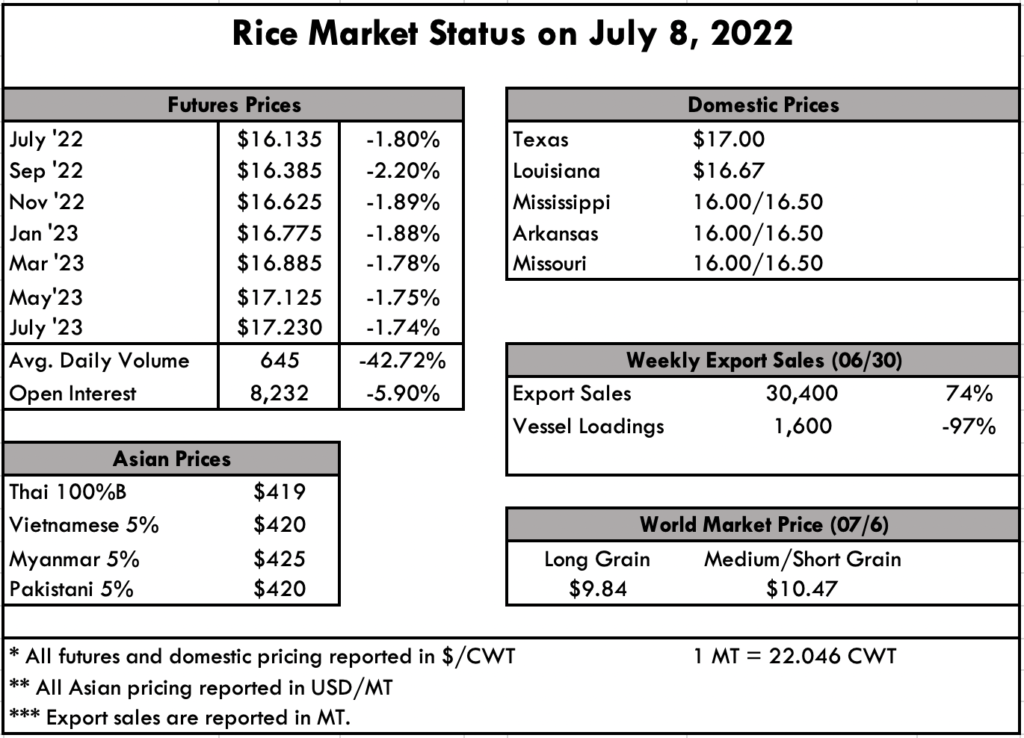
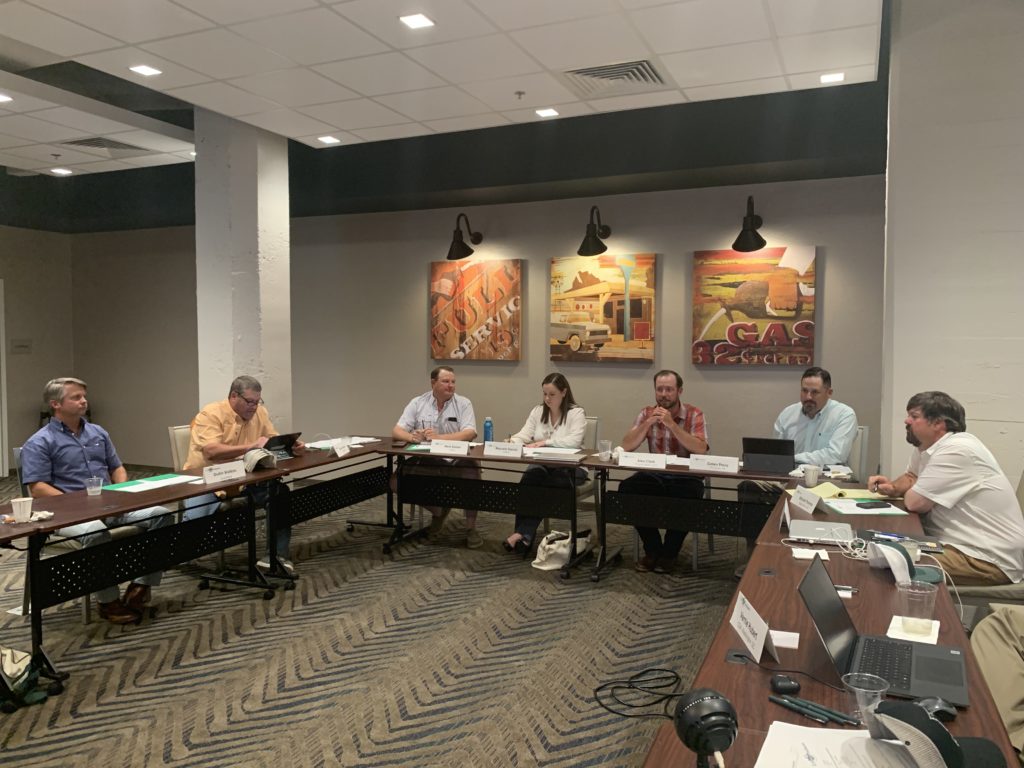
This week in Cape Girardeau, Missouri, the Board of Directors of the US Rice Producers Association held their summer board meeting that included attendance in-person as well as virtually. After reports on each of the six rice states and a financial report, Vernie Hubert and Alice Gomez from Cornerstone Government Affairs updated farmers on a number of current issues on Capitol Hill and the USDA. Marcela Garcia and Grace Wang discussed the organization’s international programs while Mollie Buckler joined them in an evaluation of the successful Rice Market & Technology Convention recently held in Cancun, Mexico. Staff from the USDA’s Foreign Agricultural Service participated in a good discussion with board members and complimented the USRPA on their progress and successes. The meeting ended with Mollie leading a discussion of the USRPA’s Farmer Exchange Program that educates young farmers on a number of challenges in the rice farming industry while conducting farm and facility visits in different states.
After the meeting concluded, the board members headed further into the Bootheel for a visit with Zack Tanner at Tanner Seed Company near Bernie, and a stop at the Missouri Rice Research Farm near Glennonville.
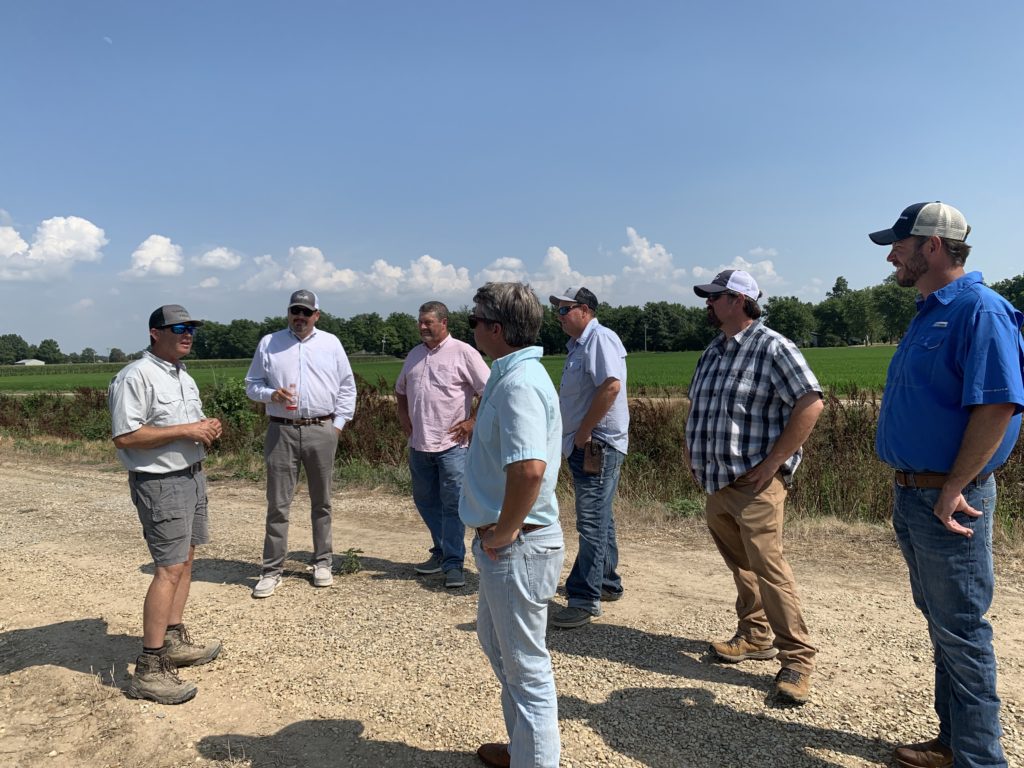
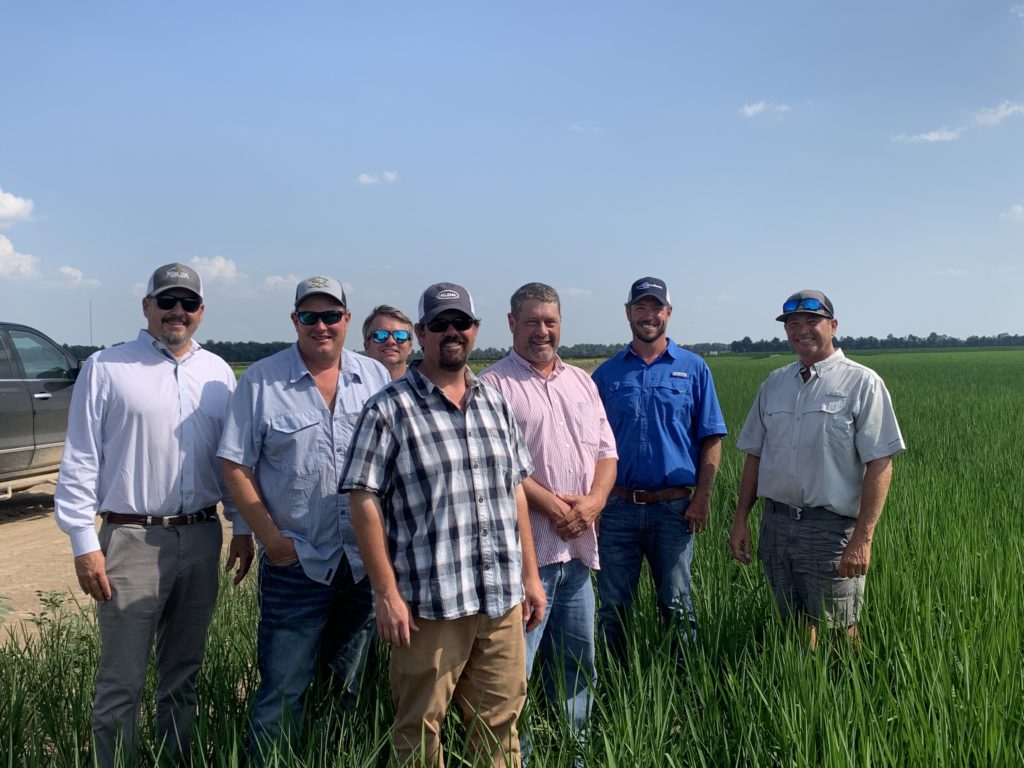
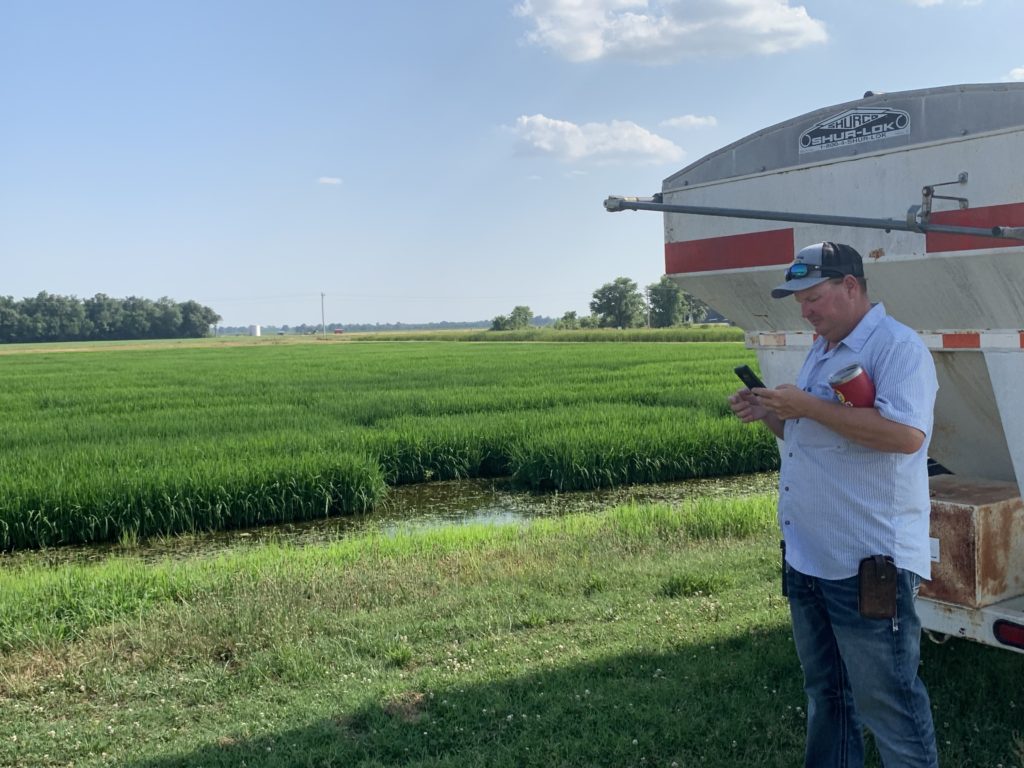
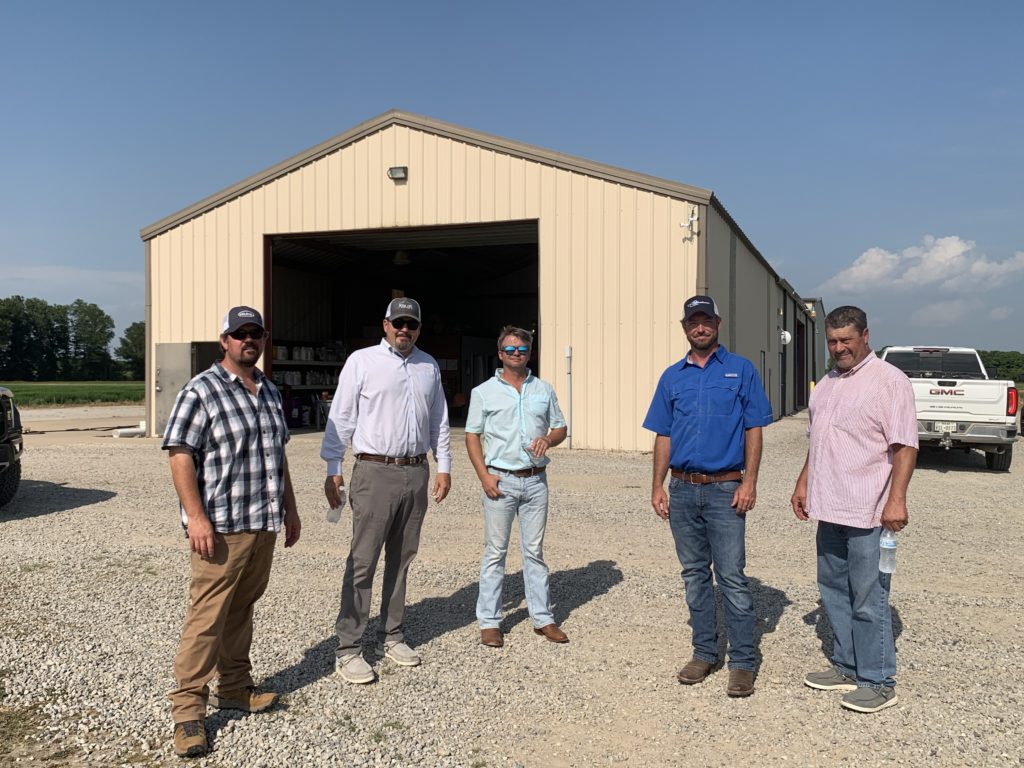
The Department of Labor sent its final rule on the H-2A temporary agricultural program to the White House Office of Information and Regulatory Affairs for approval, the final review step before publication to the Federal Register. In December 2021, the Department published draft regulations to the Register to raise required wages for farmworkers on H-2A visas. The proposed rule would also require all workers who fall within multiple job classifications to be paid under the occupation with the highest wage.
This week, a dozen House Republicans sent a letter to President Biden calling to initiate a dispute settlement case against India for violating World Trade Organization (WTO) commitments. The letter cites Indian over subsidization of rice and wheat as disruptive to global markets and US producers. The letter urges the President to file a formal request against India and to continue monitoring WTO members’ domestic support programs. The letter can be found here.
The World Bank published an article on the impacts of export restrictions on food prices and global food security. The article notes rice prices have increased by 12.3% this year as a result of export bans implemented in response to the war in Ukraine and large exporters such as India reducing their supply.
July 1, 2022
In This Issue:
The market continues to plod along, but this week with a shot in the arm from the USDA planted acres and rice stocks reports. As all expected, acres were down from last year, registering in this report total drop of 189,000 acres, split 70,000 acres of long grain and 106,000 acres of medium grain. This is perhaps less than some were expecting, so at this point we will keep an eye on weather to determine how much of the planted crop makes it to a healthy harvest. To that point, higher than normal temperatures in Texas are stressing the rice crop already, causing crop experts to warn of lower yields. The triple digit temps on the backs of a drought are not boding well for a strong crop at this point.
The Stocks report paints a decent picture — one that helps support the higher paddy prices that have been sustained on the ground. Total rice stocks were reported down 10% from this time last year; long grain rough down 11%, long grain milled down 5.5%. Crop Progress is right on track, except in California where cool weather during planting has all but stunted the rice plants, slowing their growth to maturity. And while Texas is experiencing dangerously high temps, cooler weather patterns in Arkansas and Louisiana bode well for harvest.
A recent GAIN report on Mexico published this week shows an increase in expected production in the region, up to 291,000 MT (rough), which is up 6.2% or 17,000 MT over USDA’s original estimate of 274,000 MT. This equates to approximately 200,000 MT of milled rice, correspondingly up from the 188,000 MT estimate. The increase is a result of increased plantings, and a higher yield projection, however local sources temper this expectation with concerns about water availability in Campeche to finish the crop.
In Asia, Thai prices dropped again, down to $410 pmt from $420 pmt las week. This is coming much more in line with the prices from three months ago before Iraq stepped in and tightened supply up a bit. Vietnam held constant at $420 pmt, as did India at $350 pmt.
The weekly USDA Export Sales report shows net sales of 17,500 MT, down 13% from last week’s dismal report, and 45% from the prior 4-week average. Exports of 45,800 MT were down 13% from the previous week and 25% from the prior 4-week average. The destinations were primarily to Haiti (15,100 MT), Japan (12,000 MT), Honduras (8,800 MT), Canada (3,400 MT), and South Korea (2,700 MT).
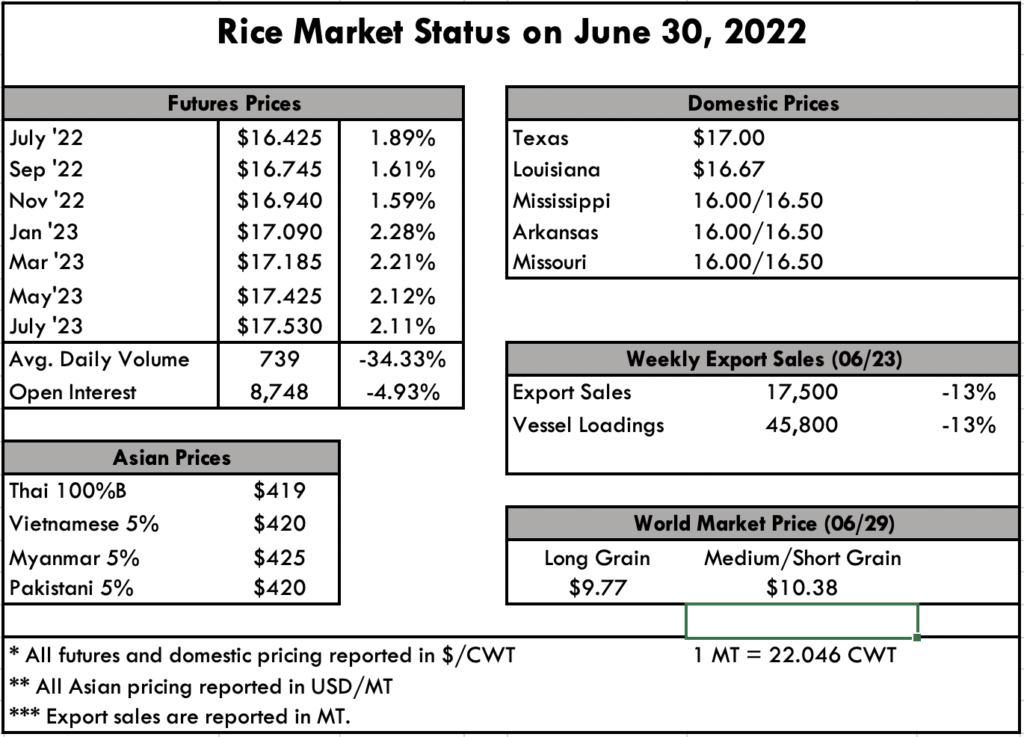

Rice farmers gathered at the David R. Wintermann Rice Research Station this week to the annual rice field day organized by the Texas A&M AgriLife Extension Service and the Colorado County Rice Committee. The event including an evening program was sponsored by area agri-businesses including the US Rice Producers Association and the Texas Rice Council. An extensive list of Texas A&M scientists presented research developments on a range of subjects while Dr. Ted Wilson (Center Director) introduced economist George Knappe who updated the audience on the rice economy and farm policy issues. Grace Wang, Eastern Hemisphere Director for the USRPA attended along with Dwight Roberts (market & policy advisor), visited with individual farmers and scientists.
Prior to the field day, the Texas Rice Producers Board met where Josey Dishman of Beaumont was named the new President and farmers Neal Stoesser (Dayton) and Barrett Franz (Bay City) were both sworn in by the Texas Department of Agriculture as new board members for Districts 2 & 7. Congratulations to those gentlemen for their leadership on behalf of the Texas rice farming industry.
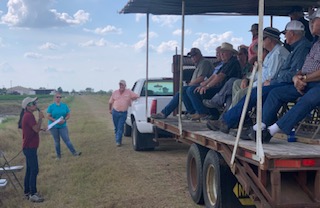



This week, President Biden traveled to Germany to meet with global leaders at the annual Group of Seven (G7) summit. G7 leaders invited President Zelenskyy to discuss actions they can take to support Ukraine in its war against Russia. Following the meeting, President Biden issued new sanctions against Russia, including raising tariffs on Russian imports. Leaders committed to taking action to reduce dependency on Russian oil and energy. They also discussed food shortages and price hikes and made commitments to combat global food insecurity.
Domestically, Colorado, Illinois, New York, Oklahoma, and Utah held primaries in advance of November’s midterm elections. In Illinois, redistricting pitted Reps. Rodney Davis and Mary Miller against each other in the Republican primary for the 15th district. Rep. Miller defeated Rep. Davis, both of whom currently serve on the House Agriculture Committee. In New York, Antonio Delgado won the Democratic primary for lieutenant governor. He stepped down from Congress in May after being appointed lieutenant governor. While in Congress, he served as the Chair of the House Agriculture Subcommittee on the Commodity Exchanges, Energy, and Credit.

To continue with the US Rice Producers Association promotional program in Mexico funded under the FAS/MAP budget, USRPA has recently hired Mercalimentos Consulting firm, located in Mexico City and led by Raul Caballero and Violeta Picazzo. Through their company, Raul and Violeta have represented various U.S. trade associations that promote U.S. products into Mexico and Latin America since the beginning of NAFTA, now USMCA. For over 20 years Mercalimentos Consultores has represented the US Dry Bean Council, the USA Dry Pea and Lentil Council, the National Sunflower Association, the US Popcorn Board, and the Food Export Association Midwest and Food Export Association Northeast, helping hundreds of companies facilitate business relationships. Mercalimentos has the experience to manage FAS-USDA programs such as the MAP, FMD, EMP, GBI programs, having an excellent relationship with the FAS-USDA offices in Mexico and the majority of Latin America. In the development of this new relationship with USRPA, Mercalimentos has been given the task to develop the new Spanish logo “USA Arroz” (US Rice), as well as a new website. They also oversee the social media program management for the Facebook and Instagram pages Consume Arroz USA, with the inclusion of content development through popular local chefs in Mexico, as well as a program of posts that promote the nutrition qualities and advantages of consuming U.S. rice.
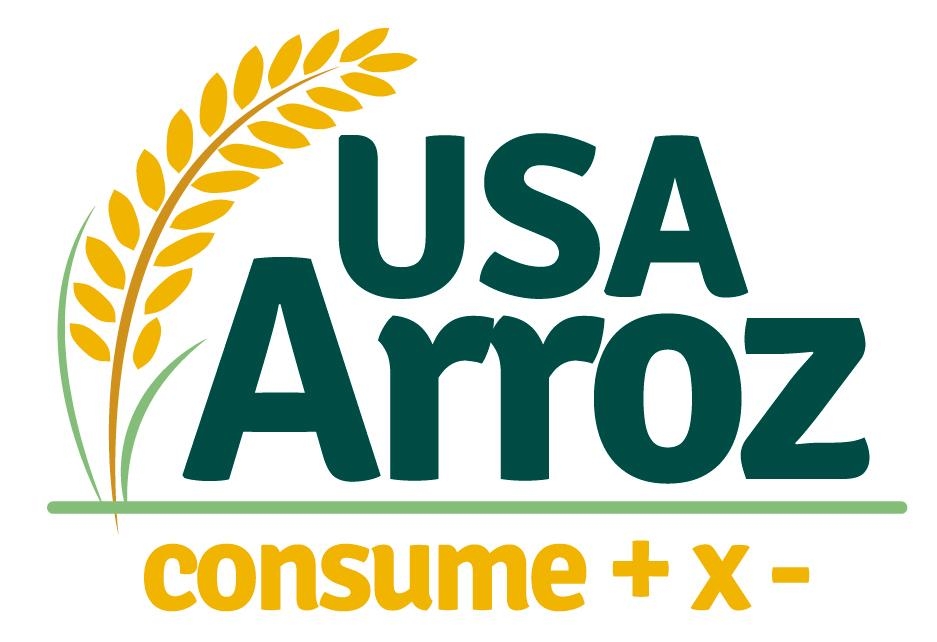 |
| During the month of May, Raul and Violeta had the opportunity to attend the Rice Market & Technology Convention in Cancun, to initiate connections in person with the USRPA staff and membership. They will share more about their attendance experience in their next article. US Rice Producers Association is excited to welcome Mercalimentos to the team! |